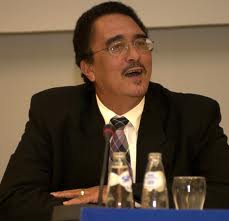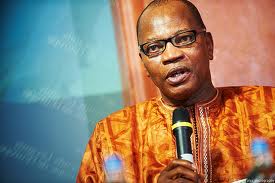One of Africa’s longest serving leaders, Obiang Nguema Mbasogo, President of Equatorial Guinea, whose regime has recently been receiving considerable attention from the international press, last week presided over a summit meeting of the 79 member African, Caribbean and Pacific Group of nations (ACP).
The Heads of State and Government gathered on the 13 and 14th December in Sipopo, some 23 km outside Malabo the capital of this small but wealthy African country. Despite its fanfare, the high level meeting attracted little international attention and just one Caribbean Prime Minister attended, CARICOM’s Chairman, Dr Kenny Anthony.
This is the seventh Summit since the ACP Heads first met in 1997 and decided to meet regularly. They had been doing so roughly every two years, though they had not met since Ghana in 2008. These Summits are designed to give Heads the opportunity to review the major developments on the international scene, to take stock of the cooperation between the European Union and the ACP Group and to define the ACP Group’s general policy.
The Ministers who prepared for the Summit agreed on the need for a new impetus to the four decades long collaboration between the ACP and Europe while deepening their South-South cooperation.
That sentiment was widely echoed at the opening ceremony with several speakers calling for more dynamism in the ACP in order for it to be able to meet the challenges of the 21st Century. John Dramani Mahama, President of Ghana and out-going President of the ACP, went further, calling on the ACP to reinvent itself so as to be a viable international player in the rapidly changing world.
The host, President Obiang Nguema Mbasogo, called for stronger South-South economic global cooperation aimed at providing guidance for strategy and policies that allow the ACP to play an effective role in the international arena. Interestingly, he proposed replacement of the ACP Group.
Andris Piebalgs European Commissioner for Development addressed the Summit on behalf of the European Union. He was fulsome in his praise for the ACP-EU relationship, viewing the cooperation of the last four decades as the most comprehensive example of any North-South agreement in the world. Referring to EPAs he said, “…our approach is the best way to promote trade and development in ACP countries”.
He acknowledged the value to Europe of its engagement with the ACP, “If our partnership has taught us anything, it is that we are stronger when we take on challenges together”. He then challenged the leaders; “are we all ready to see our relationship flourish after 2020, serving as a basis for ambitious joint political cooperation and action on the world stage?” He though seemed to question the suitability of the ACP Group as the foundation for collaboration, saying “we should consider whether the ACP setting is best suited to our working together to tackle truly global challenges”.
The trade, financial and political links with Europe are important to ACP countries, many of whom are heavily reliant on EU financial support. This situation no doubt weakens the ACP in negotiating with the EU. But should it also limit their right to independently chart their own destiny or determine how they organise themselves to engage with the wider world, in pursuit of their own interests? The perspectives of partner countries and groupings that are to be targeted are of course critical and will influence what is achievable, but outside countries evidently prioritise and pursue their own national and other interests that do not necessarily coincide with those of the ACP.
Replacing the ACP as the EU’s main development cooperation partner with a new grouping of just the poorest countries or all of Africa has recently been mooted among some European politicians. Both of these alternatives would fit in with international policy approaches currently being espoused in certain European capitals. Whether or not these arrangements would actually better serve the long-term interests of Europe itself is debatable, but they seem a retrograde arrangement for the ACP countries and would certainly not be good for the Caribbean. The region, except for Haiti, would be left out of a “club of the poorest” as well as of a purely Africa grouping.
The Secretary General of the ACP Mohamed Ibn Chambas was clear, “In a world of increasing uncertainty, we must be prepared to think outside the box – to come up with bold and courageous alternatives to ensure that the ACP not only survives but flourishes in the years ahead”.
No doubt recognising the value of the ACP’s current extensive and diverse membership, the Heads settled the question by reaffirming their commitment to the ACP and pledged to enhance intra-ACP cooperation. In their final communiqué, the Sipopo Declaration stated their determination to “stay united as a Group”
The Heads also dealt with a number of other subjects, security concerns, good governance; the future of development finance, climate change, food security and rural development.
The President of Ghana canvassed support from his colleagues for the candidature of his former Trade Minister, Alan John Kwadwo Kyerematen to succeed Pascal Lamy when he steps down from the leadership of the WTO on the 31st August next year. No doubt other aspirants will join the race; already, Costa Rica has proposed its Trade Minister Anabel Gonzalez.
Speaking after the summit, Nganou Djoumessi Emmanuel, Cameroonian Minister of Economy who over the ministerial preparations for the summit, welcomed the recent conclusion of discussions within the EU that should finally permit release of the €190 million promised since 2009 to help the development of the banana sector. Maybe, long suffering Caribbean and African banana farmers will finally receive some much needed financial support.






